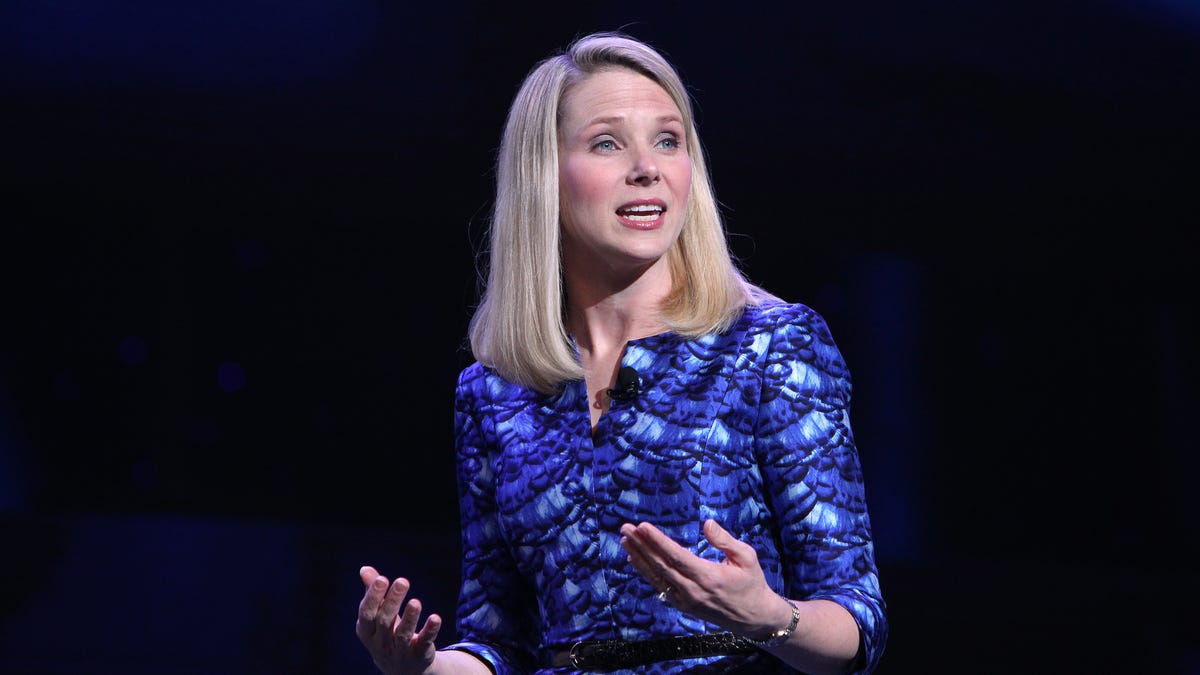Yahoo, after massive hack, still pulls in profit
The internet giant has trudged through a lot of bad press recently, but CEO Marissa Mayer can take comfort in better-than-expected financial results.

Yahoo CEO Marissa Mayer reported third-quarter financial results on Tuesday.
It might be hard to remember, but Yahoo CEO Marissa Mayer is still running a business.
Over the past few weeks, the internet pioneer has been in the headlines for just about anything except its products.
Instead, Mayer and her team have drawn scrutiny after suffering what could be the biggest hack and theft of personal account info in history, and for allegedly helping the government spy on some of its users as part of a reported plan to root out criminals and terrorists. The hacking news has led to speculation about whether Verizon is still willing to pay $4.83 billion for the company.
Through it all, Yahoo has been going about its business -- namely serving up ads that show up on its stable of web properties, including Yahoo Mail, Finance and Sports.
It seems to have been successful at sticking to business. On Tuesday, Yahoo reported profit that topped Wall Street's expectations. Shares were up less than 1 percent to $41.95 in after-hours trading.
Sales rose to $1.305 billion from $1.226 billion a year ago, but narrowly missed analyst estimates of $1.31 billion. Profit, minus some costs, was 20 cents a share. Analysts anticipated 14 cents a share.
"We remain very confident, not only in the value of our business, but also in the value Yahoo products bring to our users' lives," Mayer said in a statement.
We won't be hearing much else from Mayer about third-quarter earnings because Yahoo decided to skip its regular call with analysts, which is usually standard operating procedure for public companies after they announce results. The company decided to nix the call because of its pending sale to Verizon, a Yahoo spokeswoman said last week. That deal isn't expected to close until the first quarter of 2017.
For now, anyone looking for more detailed answers about the hack or Verizon's buyout will have to wait, with Mayer making only a brief nod to the situation in her prepared statement.
"We take deep responsibility in protecting our users and the security of their information," she said. "We're working hard to retain their trust and are heartened by their continued loyalty as seen in our user engagement trends."
In any case, Yahoo's profit and sales are likely only going to be a footnote in the story of its recent struggles. Last month, Mayer said hackers in 2014 swiped personal information associated with at least a half billion Yahoo accounts. That could be the biggest data breach in history, so far. Then, less than two weeks later, it was reported that Yahoo built surveillance tools into its spam and child pornography filters last year after the US government issued a secret directive to scan customers' emails.
After the email hack, Verizon, which agreed to buy Yahoo in July, has reportedly been rethinking parts of the deal. The wireless company allegedly wants $1 billion shaved off the sales price. And last week, Verizon General Counsel Craig Silliman reportedly said his company is leaning toward considering the hacked accounts a "material" event, meaning it could have undercut Yahoo's financial value and made it less attractive as an acquisition. Silliman's comments suggest Verizon might try to renegotiate the deal or possibly back out completely.
It wasn't supposed to be like this. Mayer, a high-profile Google executive brought in to turn around the troubled company, took charge in 2012. But while she did her best to bring Yahoo into the mobile era, the company wasn't able to figure out how to make much money off its key Yahoo's products -- especially as its rivals Google and Facebook gobbled up market share as the top two sites for digital advertising.
So when Verizon came knocking, the idea was to combine Yahoo with AOL, another past-its-prime internet powerhouse the wireless company bought last year. The aim is to form a solid No. 3 option behind Google and Facebook.
Now it seems Verizon's takeover can't come fast enough for Yahoo.
"The writing's on the wall here," said Scott Kessler, an analyst at research firm CFRA. "This era for Yahoo is coming to a close."

